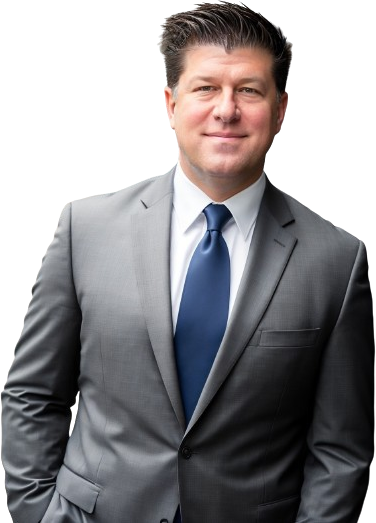
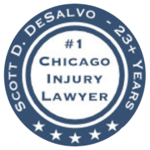

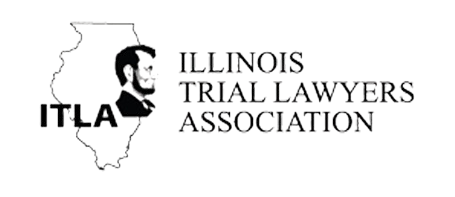
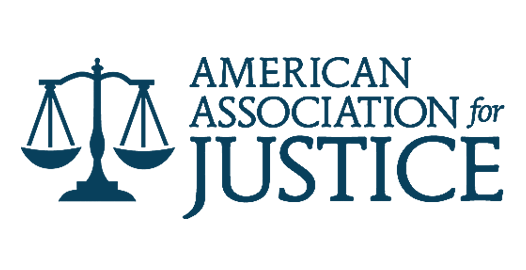
I still remember Marcus's voice when he called me. You could hear the pain, sure—but more than that, you could hear the frustration. The anger. That feeling of being completely helpless when you know you didn't do anything wrong.
Marcus had been riding motorcycles for fifteen years. Always wore his gear. Took refresher courses every couple years. Did everything by the book.
It was this gorgeous October afternoon, and he's heading south on Lake Shore Drive past Grant Park. Beautiful day for a ride. And then some guy in an SUV—texting at a red light near Buckingham Fountain—just doesn't see the light change. Doesn't see Marcus. Plows right into him going forty miles an hour.
His bike? Totaled. His leg? Shattered femur, messed up knee, road rash across his entire back even through his jacket. But here's the part that really got to me—the insurance adjuster actually had the nerve to tell Marcus that "motorcyclists know the risks they're taking."
And their offer? Fifteen thousand dollars.
For injuries that were going to require three surgeries and months of physical therapy. Fifteen grand. Like that was supposed to cover everything and he should just be grateful.
That's when Marcus found me.
Listen, I've spent my entire career representing people who've been hurt—never the insurance companies, never the other side. And I've got to tell you, I have a real soft spot for motorcycle cases because I've seen how these insurance companies treat riders. There's this attitude, this bias, that somehow if you ride a motorcycle, you're asking for trouble.
Which is complete nonsense.
Most riders I know? They're the safest, most careful drivers out there. They have to be. Because when you're on a bike, you don't have airbags protecting you. You don't have a steel frame around you. It's just you, your gear, and your skills standing between you and serious injury.
So if you've been hurt in a motorcycle crash—whether it happened on the Kennedy during rush hour, on some side street in Wicker Park, or anywhere else around Chicago—you need someone in your corner who gets it. Who understands what you're up against.
Here's my promise to you: No money out of pocket. No fee until we win. Free consultation anytime you need it—24/7/365. Call me at two in the morning if you need to.
I mean it. Someone from my team or I will pick up. Because I know motorcycle accidents don't happen during convenient business hours, and your questions can't wait until Monday morning.
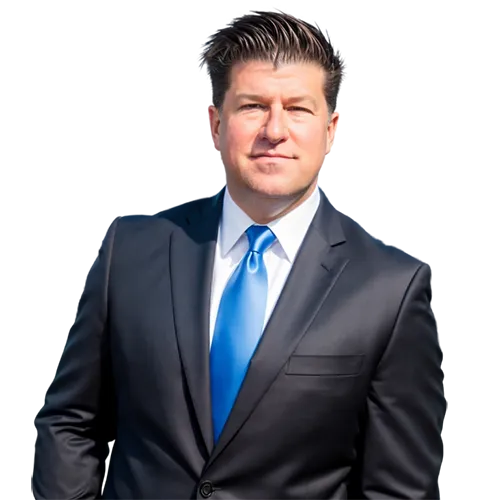
Let me be real with you for a minute. Motorcycle accident cases are not like regular car crash cases. They're harder. The insurance companies fight them way more aggressively. And you're going to face this unfair bias from basically everyone—the adjusters, sometimes even juries.
Here's what I mean:
Insurance companies actually train their adjusters specifically on how to minimize motorcycle claims. I'm not making this up. They'll look at everything—your riding experience, whether you were wearing a helmet (even though you don't legally have to in Illinois if you're over 18), whether you've ever gotten a speeding ticket, whether they think you were "showing off."
They're looking for any excuse to pay you less or deny your claim entirely.
I've been doing this for years, and honestly? I've seen every dirty trick you can imagine.
They'll try to blame you even when it's crystal clear the other driver messed up. They'll make you a lowball offer before you even know how bad your injuries really are. And they're counting on you not having a lawyer who knows how to fight back.
That's where I come in.
Chicago roads are dangerous for motorcycles. I've represented riders who've been hurt in pretty much every type of crash you can think of.
Left-turn accidents are probably the most common. You're going through an intersection—you've got the right of way—and some car just turns left right in front of you. The driver's excuse is always the same: "I didn't see him." Yeah, well, maybe you should've looked harder, right? These happen constantly at busy intersections like Milwaukee and Division, Clark and Diversey, basically anywhere you've got a lot of cross-traffic.
Lane-change crashes on the expressways drive me crazy. The Kennedy, the Ike, I-94—drivers just merge right into your lane without checking their blind spot. And suddenly you're fighting for your life.
Dooring. Man, this one terrifies me. You're riding along in the Loop or River North or Lakeview, and someone in a parked car just throws their door open without looking. You've got maybe a split second to react, and there's literally nowhere to go.
Road hazards. Don't even get me started on Chicago's roads. Potholes everywhere—and I mean everywhere. Uneven pavement. Gravel. Construction debris. What's just annoying if you're in a car can kill you on a motorcycle.
Rear-end collisions happen all the time on Western, Ashland, Pulaski—any major street really. Someone's tailgating you or messing with their phone, and they just slam right into you from behind.
And distracted driving? That's probably the biggest danger out there right now. Everyone's on their phones. Texting, GPS, Instagram, whatever. They're doing everything except actually watching the road. And guess who's the first thing they don't see? Motorcycles.
Even when riders do everything right—wearing all their gear, riding defensively—the injuries from motorcycle crashes can be life-changing. I've represented people who've suffered:
Brain injuries. Even with a good helmet, the force of impact can cause serious trauma. And these injuries? They affect everything—your memory, your mood, your ability to work. Sometimes people's entire personalities change.
Spinal cord injuries. Some of my most heartbreaking cases involve riders who'll never walk again because someone was checking their phone at the wrong moment.
Broken bones—lots of them. Femurs, tibias, arms, wrists, ribs, collarbones. Often multiple breaks that need surgery, metal plates, pins. Months and months of recovery.
Road rash. People who haven't experienced it don't get how serious this can be. We're not talking about a little scrape. We're talking about skin and muscle literally torn away. Sometimes requiring skin grafts. Always leaving scars.
Internal injuries. Getting thrown from a bike can cause internal bleeding, ruptured organs, liver damage—stuff that might not be obvious right away but can kill you if not treated.
Permanent scarring. And these don't just affect you physically. They affect how you see yourself, your relationships, sometimes even your career.
According to the Illinois Department of Transportation—and these numbers make me sick every time I look at them—there were 2,973 motorcycle crashes across Illinois last year. 119 riders were killed. 2,266 were injured. And 811 suffered what they call "catastrophic injuries."
Those aren't just statistics to me. Every single one of those numbers represents a real person. A real family that got turned upside down.
And you know what really gets me? Most of these crashes happened on regular city streets. Not highways. Not racetracks. Just everyday roads where someone made a careless mistake.

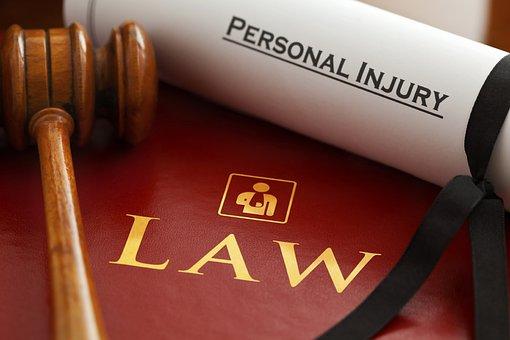

I realize you're probably reading this because you or someone you care about already got hurt. But let me walk you through what you should do after a motorcycle crash, because the steps you take in the first few hours can make or break your case.
Get yourself checked out. Like, right away.
Even if you think you're fine. Even if you're walking around and nothing hurts too bad. Go to the ER or urgent care. I'm serious about this.
Here's why: Adrenaline is a hell of a thing. It can mask serious injuries for hours, sometimes even days. And insurance companies love—I mean love—to argue that if you were really hurt, you would've gone to the hospital right away. Don't give them that ammunition.
Don't take off your gear until the paramedics get there.
I know you probably want to rip off your helmet and jacket. But hold on. You might have injuries you don't even realize yet, and taking off your gear could make them worse. Let the professionals assess you first and remove your gear safely if needed.
Call 911. Get a police report.
Always. Every single time. I don't care if the other driver seems super nice and promises to "handle everything." Get an official police report. Get the report number. That report is crucial evidence.
Document everything if you can.
If you're physically able—and only if it's safe—take pictures of all the damage from different angles, photograph the accident scene (road conditions, skid marks, debris, everything), get photos of your injuries, take pictures of traffic signs and signals, and get witness information. Actually get their phone numbers and full names, not just "yeah, I saw what happened."
Don't apologize. Don't say you're sorry. Don't admit anything.
This is huge. I know you're probably a nice person who naturally says "I'm sorry" when something bad happens. But anything that sounds like you're admitting fault can be used against you. Exchange information, be polite, but keep your mouth shut about what happened.
Don't talk to the other driver's insurance company.
They're going to call you fast—usually within 24 hours. They'll sound all friendly and concerned. They'll say they "just need your side of the story" and can they please record you?
Do not give them a statement.
They're not your friends. They're trained to ask questions designed to minimize your claim or get you to say something they can twist. Tell them you need to talk to your lawyer first.
Call me as soon as you can.
The sooner I can get started on your case, the better I can protect you and preserve evidence. Security camera footage gets deleted. Witnesses forget details. Physical evidence disappears.
Here's what happens when you call—we talk (it's totally free), I listen to what happened, I answer every question you've got, I tell you what I think we should do, you decide if you want to hire me (no pressure whatsoever), and whether you hire me or not, we're cool. We'll end the call as friends.
That's it. No high-pressure sales pitch. No games. Just an honest conversation.

Most people assume that if another driver caused the crash, that driver is the only one they can go after. But that's not always true. Sometimes when we really dig into a case, we find multiple parties who share responsibility.
The driver who hit you. Obviously. If they were distracted, speeding, drunk, failing to yield, breaking traffic laws—they're on the hook.
Their employer. If the at-fault driver was working when they hit you—making deliveries, driving for Uber or Lyft, operating a company vehicle—their employer might be liable too. There's this legal concept called "respondeat superior" that basically says employers are responsible for what their employees do on the job.
Vehicle or parts manufacturers. If there was something wrong with your bike or the other vehicle that contributed to the crash, the manufacturer could be responsible. Defective brakes, bad tires, steering problems—stuff like that.
The City of Chicago or State of Illinois. If the road conditions were dangerous and that contributed to your crash, the government entity responsible for maintaining that road can be held liable. Potholes (and God knows we've got plenty), poorly maintained roads, missing guardrails, bad signage, dangerous construction zones—all of that.
Bars or restaurants. If the driver who hit you was drunk and some bar over-served them, Illinois has dram shop laws that let you go after that establishment.
Parts suppliers. If an aftermarket part failed and that played a role in the crash, the company that made or sold that part might be liable.
I've handled cases involving all these scenarios. Part of my job is doing a thorough investigation to find every potential source of recovery for you. Because sometimes the at-fault driver doesn't have much insurance or any assets, and we need to look elsewhere to get you fully compensated.
Find Out What YOUR Case Might Be Worth...for free.
Real talk. Because ultimately, a personal injury case comes down to money. Making you financially whole after someone else messed up your life.
Insurance companies want you to settle fast and cheap. They'll throw out a number that sounds pretty good at first—until you really think about everything you're going through.
Here's what you actually deserve:
Every penny of your medical bills—the ambulance ride, ER treatment, hospital stays, surgeries (all of them), all your medications, physical therapy sessions, future medical care you're going to need, medical equipment (wheelchair, crutches, whatever), and home health care if you need it.
Your lost income, past and future—every day of work you've already missed, future time you'll miss, and if you can't go back to your old job, the difference in what you could've earned versus what you can earn now. Lost benefits too—health insurance, retirement contributions, bonuses. If you're self-employed, lost business income.
Property damage—your bike (either fixing it or replacing it), your gear, and anything else that got damaged.
Pain and suffering—the physical pain you've been through, chronic pain you're dealing with now, emotional distress, anxiety or depression or PTSD, not being able to do things you used to enjoy, and dealing with scars and disfigurement.
How it's affected your relationships—impact on your marriage, loss of companionship with your spouse, and the burden on family members who've had to take care of you.
And sometimes punitive damages. In cases where someone did something really reckless—like drunk driving—Illinois allows for punitive damages. That's extra money designed to punish the wrongdoer and send a message.
I've recovered millions of dollars for clients over the years. Not because I'm some superhero lawyer, but because I actually put in the work to prove what each case is really worth. And I'm not afraid to take a case to trial if the insurance company won't play fair.
Man, I wish I could tell you that insurance companies would treat you fairly. I really do. But I'd be lying to you.
Here's what actually happens, and it makes me angry every single time:
They use the fact that you ride against you. They paint motorcyclists as "risk-takers" or "thrill-seekers" or "adrenaline junkies." Like you somehow deserve what happened because you chose to ride. It's victim-blaming, plain and simple.
They'll nitpick your gear. Even though Illinois doesn't require helmets if you're over 18, they'll argue that you made your injuries worse by not wearing one. Or your jacket wasn't thick enough. Or your boots weren't rated for motorcycle riding. Whatever they can think of.
They lowball you right out of the gate. They know you probably need money. Medical bills are piling up. You can't work. So they make a quick, low offer hoping you'll just take it and go away.
They stalk your social media. I'm dead serious about this. If you post a picture of yourself out with friends or doing any kind of physical activity, they'll use it to claim you're not as hurt as you say. I tell all my clients: stay completely off social media until your case is done.
They send you to their doctors. These are doctors the insurance company pays, and—surprise, surprise—they almost always say your injuries aren't that serious. Funny how that works, right?
They play delay games. "We never got that document." "Can you send it again?" "We need more time to review." All hoping you'll get frustrated and settle for less just to end the nightmare.
They use your own words against you. Remember that recorded statement they wanted right after your crash? They were fishing for anything—literally anything—they could twist to deny or minimize your claim.
When you hire me, all that stops. You don't talk to them. You don't give them statements. You don't sign their forms. Everything goes through me. And I know all their games because I've been doing this long enough to see them all.

There's a lot of confusion out there about what you're entitled to after a motorcycle crash. Let me straighten some things out:
You get to pick your own doctor. The insurance company cannot force you to see their preferred doctors. You have the absolute right to be treated by any licensed physician you choose. Period.
Not wearing a helmet doesn't kill your case. Illinois doesn't require riders over 18 to wear helmets. Smart to wear one? Absolutely. But not wearing one doesn't prevent you from recovering compensation. The insurance company will try to use it against you, but Illinois law doesn't reduce your damages just because you weren't wearing a helmet.
You can still recover money even if you made a mistake too. Illinois has this thing called "modified comparative negligence." Basically, as long as you were less than 51% responsible for the crash, you can still recover damages. They'll just reduce your award by your percentage of fault. But you're not automatically barred from recovery just because you weren't perfect.
You've got two years to file a lawsuit. The statute of limitations for personal injury claims in Illinois is two years from the date of your crash. But don't wait until year one and day 364. Evidence disappears. People forget. Insurance companies get less willing to settle.
You don't have to accept their offer. Just because the insurance company makes an offer doesn't mean you have to take it. If it's not fair, we reject it. And if necessary, we take your case to trial and let a jury decide.
Hiring me costs you nothing upfront. I work on contingency. That means no money out of your pocket. I only get paid if I win your case. If I don't win, you don't pay me a dime in attorney fees. And I advance all the case costs—filing fees, expert witnesses, medical records, depositions, everything. You never pay out of pocket for anything.
Pretty good deal, if you ask me.

Understanding why motorcycle crashes happen helps us build stronger cases. And honestly? Most of these causes are completely preventable, which makes them even more infuriating.
Left-turn accidents. This is number one. Some car turns left right in front of an oncoming motorcycle because the driver "didn't see it." You know how many times I've heard that excuse? Too many. These happen constantly at busy intersections—Michigan and Randolph, Clark and Diversey, you name it.
Distracted driving. This one's gotten so much worse. Everyone's on their phones. Texting, scrolling Instagram, checking GPS, whatever. They're doing everything except actually driving. And motorcycles are invisible to them until it's too late.
Speeding. When drivers go too fast, they don't have time to react to motorcycles. And when a crash happens at high speed, the injuries are so much worse.
Drunk driving. The number of motorcycle crashes caused by drunk drivers is heartbreaking. Impaired reaction times, poor judgment, and often happening at night when visibility is already bad.
Tailgating. Following too close to a motorcycle is insane. Bikes can stop faster than cars, so if a rider brakes suddenly, the car behind can't stop in time.
Lane changes without looking. Drivers who don't check their blind spots or signal cause countless sideswipe crashes. Just look before you change lanes. It's not that hard.
Not yielding the right of way. At intersections, at merges, everywhere—drivers just don't give motorcycles the right of way they're legally entitled to.
Dooring. In areas with street parking—especially downtown or in dense neighborhoods—drivers and passengers open car doors right into the path of motorcycles. It's so common and so dangerous.
Bad roads. Potholes (Chicago's specialty), uneven pavement, gravel, metal plates, railroad tracks. What's just annoying for a car can be deadly for a motorcycle.
Weather. Chicago weather changes fast. Rain, snow, ice, crazy wind. These conditions make riding more dangerous, especially when other drivers don't adjust how they're driving.
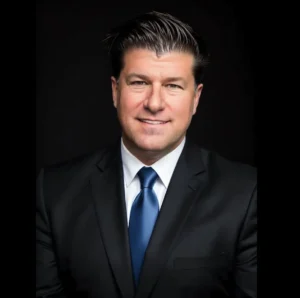
This is something people don't talk about enough, but it's absolutely real and legitimate.
PTSD after a motorcycle crash is way more common than most people realize. The trauma of being hit, the terror of the impact, the pain, the sound of the crash—it can fundamentally change how your brain works.
Signs you might have PTSD—flashbacks or intrusive memories that won't leave you alone, nightmares about the crash, severe anxiety when you're riding or even around motorcycles, avoiding the place where the crash happened, being constantly on edge (always waiting for something bad to happen), trouble sleeping or concentrating, irritability or sudden anger, feeling emotionally numb, and physical reactions when something reminds you of the crash like racing heart, sweating, or panic attacks.
And here's what a lot of people don't know: You're not the only one who can develop PTSD from your crash. Witnesses, passengers who were with you, family members who saw you in the hospital, even the emergency responders who worked your accident—they can all develop PTSD too.
PTSD is a real injury that deserves real compensation. Your case should include the cost of therapy and counseling, psychiatric medications, lost wages if PTSD keeps you from working, the loss of enjoying life if PTSD stops you from doing things you used to love, and all the pain and suffering from the emotional trauma.
I take PTSD seriously because I've seen what it does to people. Insurance companies try to minimize these claims, but with the right documentation and a lawyer who fights for you, you absolutely can recover compensation for psychological injuries.
If you're experiencing any of these symptoms, please tell your doctor. Get evaluated by a mental health professional. And let me know so we can make sure it's part of your claim.
Hiring Scott was one of the best moves I have made in my life. Scott is a down to earth person and attorney. Scott is a 5 star first class act who really knows his stuff. The Judge said his presentation was one of if not the best he had ever seen. Take my advice, hire Scott I’m sure you’ll be 200% satisfied I was.

Scott not only cares about the case, but he truly cares about his clients and that makes him the best lawyer I have ever met and hired! He won my case! He is thorough in everything he does. I highly recommend Scott, and will always refer him to family and friends.

I hired Scott DeSalvo upon a friend’s recommendation. His office kept me informed of developments as they happened, and I felt the settlement reached was fair considering my injuries. I would highly recommend Scott DeSalvo to represent your personal injury case.

This is one of the first questions everyone asks me, and I get it. You want to know when this nightmare will be over.
I wish I could give you a simple answer, but the truth is every case is different.
If your case is pretty straightforward—liability is clear, your injuries aren't too serious, the insurance company isn't being ridiculous—we might settle in 3-6 months.
For more serious cases—bad injuries, complex liability, disputes about fault—you're looking at 6-12 months or longer. And here's the thing: we don't want to settle your case until we know the full extent of your injuries. Settling too early could leave you without money for future surgeries or long-term care you need.
If we have to file a lawsuit and go to trial—which happens when the insurance company just won't make a fair offer—we're talking 1-2 years or more. The whole litigation process takes time. Discovery, depositions, motions, and then finally trial.
Here's my philosophy on this: I'd rather take the time to build a really strong case and get you maximum compensation than rush to some quick, cheap settlement. But I also get that you've got bills piling up and a life to live. So I work as efficiently as I can without ever cutting corners on the quality of your case.
And throughout the whole process, I keep you in the loop. You'll always know where we stand and what's happening next. No surprises. No disappearing on you.

I'm a lawyer, not a riding instructor. But I've handled enough motorcycle cases to know what helps keep riders safer on Chicago's crazy streets.
Ride like you're invisible. Seriously. Assume every single driver doesn't see you. Because about 75% of motorcycle crashes happen because the driver didn't see the rider. Make yourself as visible as possible—bright colors, reflective gear, headlight always on. And position yourself where drivers can actually see you.
Slow down at intersections. Even when you've got the right of way. Make eye contact with drivers who are waiting to turn. If they're not looking at you, assume they're going to pull out in front of you.
Check the weather before you ride. Chicago weather is nuts. It can change in like ten minutes. Rain, snow, wind—they come out of nowhere. Check the forecast, especially if you're planning a longer ride.
Don't speed. I know, the temptation is there. But speeding is a factor in about a third of fatal motorcycle crashes. The faster you're going, the less time you have to react, and the worse your injuries will be if something happens.
Keep your bike maintained. Regular maintenance isn't just about performance. It's about safety. Check your tires, brakes, lights, chain before every ride.
Take a safety course. Even if you've been riding for years. The Motorcycle Safety Foundation offers courses all around Chicago, and they're worth it.
Wear real gear. Helmet, jacket, gloves, boots, pants—actual riding gear, not just regular clothes. Yeah, Illinois doesn't require helmets for adults, but helmets literally save lives. Since 2002, more than 25,000 riders have avoided death by wearing helmets.
Watch for road hazards. Chicago roads are terrible. Potholes everywhere, uneven pavement, gravel, metal plates, railroad tracks. Stay alert and give yourself room to maneuver around them.
Don't hang out in blind spots. Either get ahead of cars or drop back. Don't cruise right next to them where they can't see you.
Never ride impaired. This should go without saying, but don't ride after drinking or using drugs. That includes some prescription meds that can mess with your reaction time.
None of this stuff will prevent every crash. Sometimes other drivers are just careless or reckless, and there's nothing you can do about it. But these tips will improve your odds of getting home safe.

I handle cases throughout the entire Chicago area and the surrounding suburbs.
All over Chicago—The Loop, River North, Lincoln Park, Lakeview, Wicker Park, Logan Square, Pilsen, Bridgeport, Hyde Park, Bronzeville, Rogers Park, Edgewater, Uptown, Andersonville, Bucktown, Ukrainian Village, West Loop, South Loop, Old Town, Gold Coast, Streeterville, West Town, Humboldt Park, Little Village, Brighton Park, Englewood, Auburn Gresham, Beverly, Morgan Park—literally all 77 neighborhoods.
The suburbs too—Evanston, Skokie, Wilmette, Oak Park, Cicero, Berwyn, Oak Lawn, Orland Park, Tinley Park, Schaumburg, Arlington Heights, Des Plaines, Mount Prospect, Naperville, Aurora, Joliet, Elgin—throughout Cook, DuPage, Will, Lake, and Kane Counties.
Wherever your crash happened—The Kennedy, the Edens, the Dan Ryan, the Eisenhower, the Tri-State, the Stevenson, Lake Shore Drive, Western, Ashland, Pulaski, Cicero, Milwaukee, Halsted—doesn't matter where.
My office is at 1000 Jorie Blvd, Ste 204, Oak Brook, Illinois 60523. But if that's not convenient for you, no worries. I'll come to you. We can meet at your place, at a coffee shop, wherever you're comfortable.
The important thing is getting you help, not making you drive somewhere when you're hurt.
Find out if you have a good case, or a tough one...for free!
Let me tell you something personal.
When I was nine years old, my dad got catastrophically injured at work. He was a truck driver—a Teamster—and he was still young, still had a family to take care of. But that injury took everything from him. Permanent damage to his neck, back, and spine. He was never the same person after that.
He hired a law firm to handle his case. But they treated him like garbage. Didn't explain things. Didn't return his calls. Didn't pursue all his legal options. His case dragged on for seventeen years. Seventeen years.
At the end of all that? At the end of seventeen years of pain and waiting and struggling? His own lawyer sued him in a fee dispute, trying to take more of his settlement money.
We grew up poor after my dad couldn't work anymore. I watched what that injury—and that awful lawyer—did to him. To my mom. To our whole family.
So I worked my way through high school. Put myself through college and law school. And I made myself a promise: What happened to my family would never happen to anyone I represent. Ever.
That's why I only represent injured people—never insurance companies, never the defense. That's why I take cases seriously whether they're big or small. That's why I've spent over $100,000 on advanced trial training, flying all over the country to study with the best lawyers in the field.
I'm a graduate of Gerry Spence's Trial Lawyer's College. I've completed the KTI "The Edge" program. Not one in 10,000 lawyers has the training I have.
I didn't do any of that for my ego. I did it so that when you hire me, you're getting the absolute best representation possible.
Your fight is my fight.
When an insurance company tries to cheat you, it makes me angry. Like, personally angry. Because I remember what my dad went through. I remember watching him struggle with lawyers and insurance companies who didn't give a damn about him.
I'll be damned if I let that happen to you.
Chicago's got a lot of injury lawyers. Some of them are good people. Some are just looking for easy cases and quick settlements.
Here's what makes me different:
I treat you like family. You're not a case number. You're not a file sitting on some paralegal's desk. You're a real person who got hurt and who's worried about the future. I answer your phone calls. I explain things in plain English, not legal jargon. You'll always know what's happening with your case.
I take tough cases. A lot of firms only want the slam-dunks—clear liability, big insurance policy, serious injuries. I'll take cases that are more complicated. Because sometimes the people who need help the most are the ones with difficult situations.
I'm not a pushy salesman. I don't chase people. I don't pressure anyone. We talk like normal human beings. If you want to hire me, great. If not, we're still good. No hard feelings, no pressure.
I only represent injured people. Some lawyers play both sides—they represent injured folks one day and insurance companies the next. Not me. I only represent people who got hurt. That's it.
You never pay out of pocket. I cover everything. Medical records, expert witnesses, filing fees, depositions—all of it. If I don't win your case, you don't owe me anything. The risk is all on me.
I'm available when you need me. Call me at (312) 500-4500 anytime. Three in the morning? Sunday afternoon? I'll answer, or someone from my team will. Because your questions can't wait for business hours.
I give away free information. I wrote a whole book and made a DVD about how injury cases work. I give it away free to anyone who wants it. I've got a free case value calculator on my website. Why? Because I believe in educating people, not just selling them.

Let's talk money because I know it's on your mind.
The consultation is completely free. When you call, there's no charge. We talk, I listen, I answer your questions, I give you my honest opinion. Whether I think you've got a case or not. The call costs you nothing.
I work on contingency. That means I only get paid if I win your case. No upfront retainer. No hourly bills. No invoice showing up every month. If I don't get you money, you don't pay me anything in attorney fees.
The rates are standard—personal injury cases are 33⅓% if we settle before filing a lawsuit, 40% if we have to go to trial. Workers' comp cases are 20% (that's set by Illinois law). Medical malpractice is 33⅓%.
These are normal rates everywhere in Illinois. Anyone who says they charge less is either hiding other fees or not putting in the work to maximize your case.
I pay for everything upfront. Filing lawsuits costs money. Getting your medical records costs money. Hiring expert witnesses costs money. I pay for all of it. And if we lose your case? You don't pay me back. The financial risk is entirely on me.
You only pay if you get paid first. I can't make it any clearer than that. You walk away with money before I take my fee.
Not a bad deal, right?

Here's the whole process, step by step:
You call me at (312) 500-4500. Anytime. Day, night, weekend, whenever. I pick up, or someone from my team does.
We talk. I listen to your story. Ask some questions so I understand what happened and what injuries you're dealing with.
I give you my honest take. I'll tell you straight up whether I think you've got a case. What I can do for you. What you should expect. No sugar-coating, no making promises I can't keep.
You decide. Want to hire me? Great, let's do it. Want to think about it? That's totally fine. Want to talk to other lawyers first? I completely understand. There's zero pressure from me.
I get to work immediately. If you hire me, I don't waste time. I start investigating your case right away. Get the police report. Contact the insurance company. Start gathering evidence. Put together a strategy.
I keep you in the loop. Throughout the whole thing, you'll know what's happening. I return calls. I explain stuff in normal language. You're never sitting there wondering what's going on with your case.
I fight for every dollar you deserve. I negotiate hard with the insurance company. I don't roll over for lowball offers. And if they won't pay fair compensation, I'll file a lawsuit and take your case to trial. Whatever it takes.
You get your money. When we win—through settlement or trial—you get paid. Medical

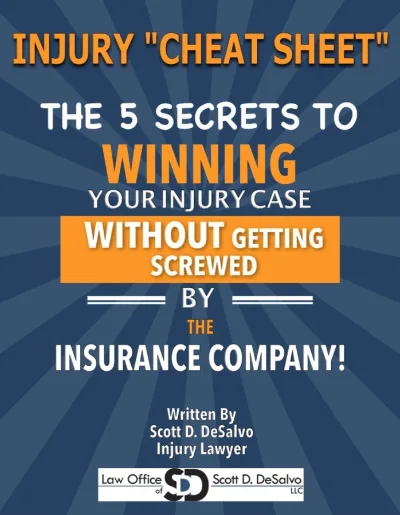
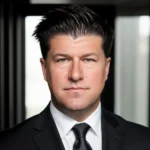
Scott DeSalvo founded DeSalvo Law to help injured people throughout Chicago and surrounding suburbs. Licensed to practice law in Illinois since 1998, IARDC #6244452, Scott has represented over 3,000 clients in personal injury, workers compensation, and accident cases.
No Fee Unless You Win | Free Consultation | 24/7 Availability Call or Text: (312) 500-4500
>>Read More
Main Office:
1000 Jorie Blvd Ste 204
Oak Brook, IL 60523
New Cases: 312-500-4500
Office: 312-895-0545
Fax: 866-629-1817
service@desalvolaw.com
Chicago and Other Suburban Offices
By Appointment Only